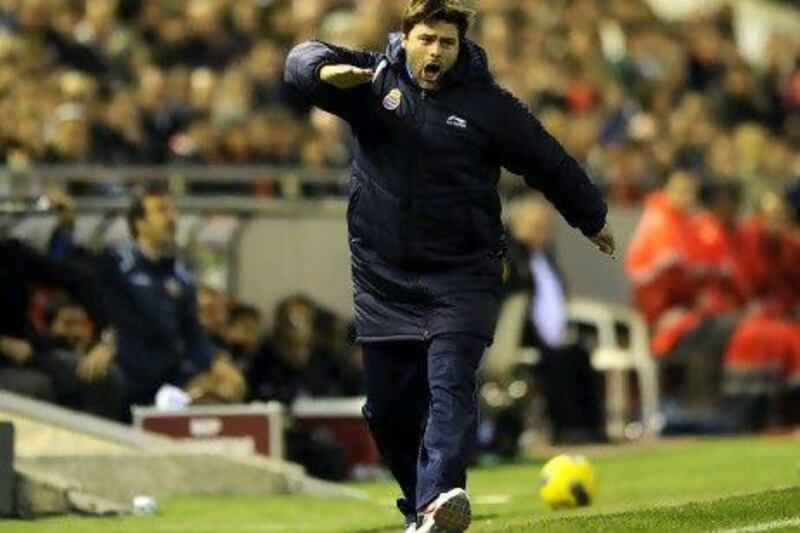Mauricio Pochettino, the Espanyolcoach, rightly shrugged his shoulders and shook his head. A journalist asked him how he felt after an English investment fund paid €2.3 million (Dh11m) for economic rights in three of his most promising players.
Hector Moreno, Alvaro Vazquez and Jordi Amat are now part-owned by a group who will profit if they are sold. It is in the interests of the group to sell the players, otherwise they won't profit.
"We need to live with this, but it's not good for any team or dressing room," said Pochettino. "We are used to getting by like this and I have absolute resignation about what is happening."
In debt Espanyol claim the offer is too good to refuse and despite average crowds of 26,000, Barcelona's second club live a hand-to-mouth existence and routinely sell their best talents. Two were sold to Italian clubs last year and the €16m received prevented Espanyol from entering administration.
Third party player ownership is common in South American, but it is illegal in many European countries. Not in Spain, where this human trading can flourish. The fans do not like it, the players do not like it and the coaches abhor it. They are right to be angered for the unedifying third party ownership destabilises clubs.
Nobody is pretending football is not a business, but dreams can be achieved, the little man can still triumph. It is not all about money.
Pochettino faces a dilemma. He wants his players to do well, but not too well as they will be sold and he won't have a say in it.
Follow us
[ @SprtNationalUAE ]






